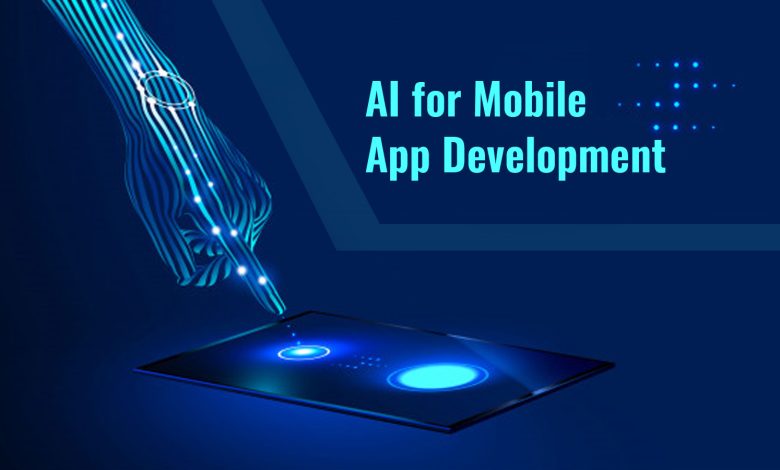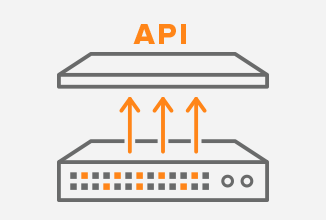Artificial Intelligence in Mobile App Development: Why You Should Implement AI in Your Next App

One of the first questions that you may ask yourself when creating a mobile app is whether or not you should include Artificial Intelligence in your mobile app development. The fact of the matter is that we’re in the age of Artificial Intelligence. And, this new wave of technology has already begun to permeate every aspect of our lives, including how we interact with businesses and how businesses interact with their customers.
Artificial Intelligence in Mobile App Development: Why You Should Implement AI in Your Next App
What is artificial intelligence?
Artificial intelligence is a branch of computer science that deals with the creation of intelligent agents, which are systems that can reason, learn, and act autonomously. AI has been used in a variety of fields, including gaming, finance, healthcare, and manufacturing. In recent years, AI has become increasingly popular in mobile app development. With the implementation of machine learning, data mining, natural language processing, etc., artificial intelligence provides developers with a wide range of opportunities to create more personal experiences for users.
The first use case for artificial intelligence in mobile apps is chatbots. Chatbots provide businesses with new ways to interact with customers by enabling users to carry out some tasks without leaving the chat interface.
The 3 types of artificial intelligence
There are three main types of artificial intelligence: rule-based systems, decision trees, and neural networks. Rule-based systems follow a set of defined rules to arrive at a conclusion. Decision trees analyze data points and decide which path to take based on the results. Neural networks are modeled after the human brain and can learn from experience. They use layers of neurons and synapses that simulate how real brains work.
Fuzzy logic is a type of AI that creates fuzzy sets instead of discrete categories for classification. It’s more difficult to understand than other types but has been proven to be more accurate than other forms of artificial intelligence when analyzing large amounts of data. Another kind of AI is adaptive artificial intelligence (AI). Adaptive AI analyzes data over time and updates accordingly.
For example, if you’re creating an app to help people who have weight problems, it will track their progress or lack thereof by using input like weight or number of calories consumed each day. If the user is not making any progress towards their goal weight then it would suggest another course of action such as taking up a different exercise regimen or adopting a different diet plan. These programs could also make recommendations based on what they find most effective with others. Some examples of adaptive AI include IBM Watson, Amazon Alexa, Google Home, and Siri.
One downside to these programs is that some users may rely too heavily on them, so it’s important to let your users know they shouldn’t replace medical advice given by a doctor or pharmacist. The best apps combine machine learning with other techniques so there is no need for humans to come up with solutions manually.
How to use artificial intelligence in your app development strategy
If you’re looking to develop a mobile app that will stand out from the rest, you should consider implementing artificial intelligence into your development strategy. Artificial intelligence can help your app learn and evolve over time, making it more user-friendly and effective. Here are a few ways you can use AI in your app development
First, by using algorithms and machine learning technologies during development, developers can ensure their apps are always changing to suit users’ needs.
The best way to do so is by incorporating AI platforms like Google’s TensorFlow or IBM Watson that allow developers make their apps able to perform certain tasks with very little input on users’ part. These include things like language translation, image recognition, and other automated processes that would otherwise require extensive training of human workers.
Second, developers can take advantage of machine learning technology when designing their application interfaces. For example, if a customer is frustrated with a particular feature of an app and has deleted it five times already, an AI could notice this pattern and ask them if they want to delete the app permanently before they have a chance to do so again.
Benefits of integrating artificial intelligence into mobile apps
If you’re looking to create a mobile app that stands out from the rest, you should consider integrating artificial intelligence into your design. By doing so, you can take advantage of the many benefits that AI has to offer, including the following -Reduced development time -Increased user engagement -Personalized experiences for every user -Potential increased revenue through better marketing efforts and recommendations While there are some aspects of implementing AI into your mobile app that require careful consideration, with research and planning you’ll be able to reap all the benefits of this innovation.
AI’s impact on future mobile apps: With the technology evolving constantly, it is impossible to know how Artificial Intelligence will impact future innovations in mobile apps. What we do know is that by integrating it today, developers will be well positioned to capitalize on these new developments tomorrow. In addition, as an added bonus, you’ll also benefit from reduced development time and increased potential revenues. Overall, integrating AI into your next mobile app could not only give it an edge over the competition but also help users feel more satisfied with their experience.
Conclusion
Artificial intelligence is no longer a thing of the future—it’s here, and it’s changing the way we live and work. If you’re not already using AI in your mobile app development, you should be. Here’s why -The cost of developing an app with artificial intelligence will decrease over time.
-AI will grow increasingly smarter over time as it collects more data and learns from human behavior.
-More people are adopting smartphones every day, which means more customers for your business. And if they use apps like Facebook or Google Maps, they’re likely going to use them on their phones instead of their computers! It’s now easier than ever to design great user experiences that incorporate artificial intelligence without spending a lot of money upfront. Plus, AI can help businesses reduce costs by optimizing resources and staff time so that companies can scale up quickly when needed. It’s true that AI is changing the way we do things today–but even better, it’s about to change how businesses run tomorrow too!




